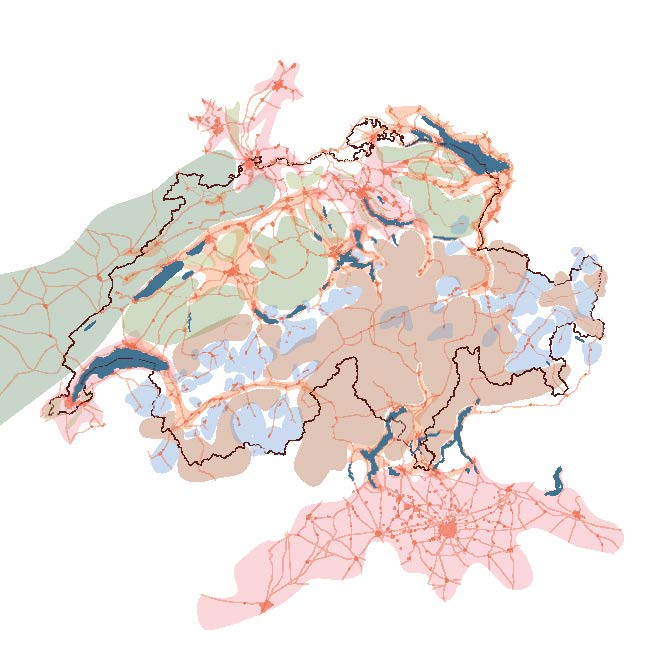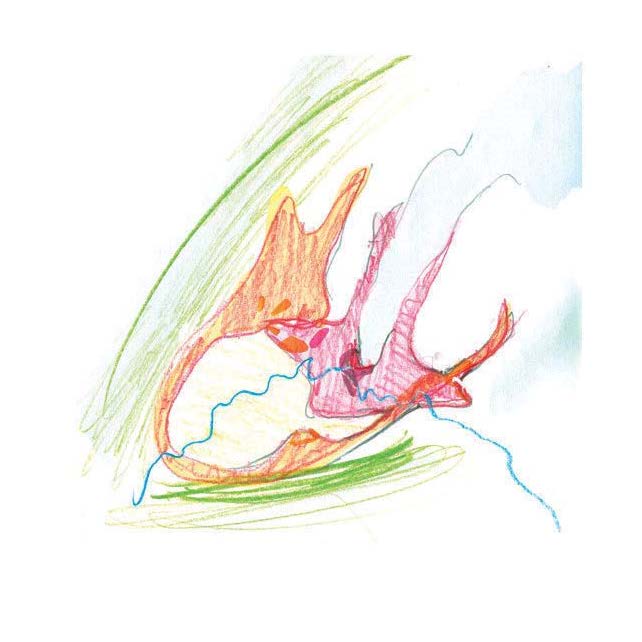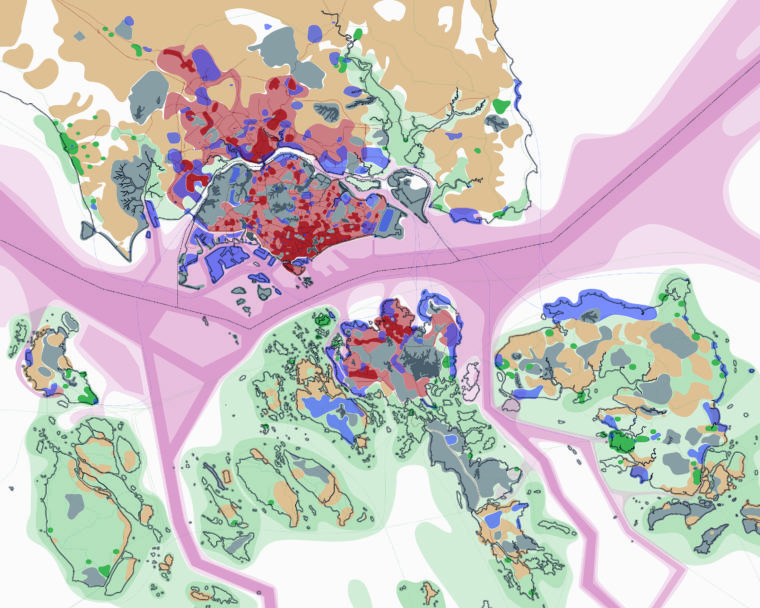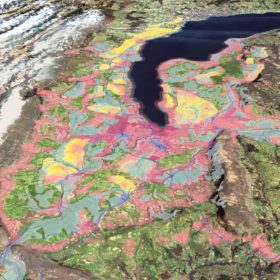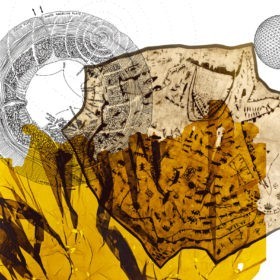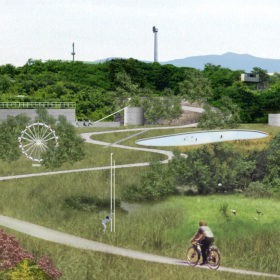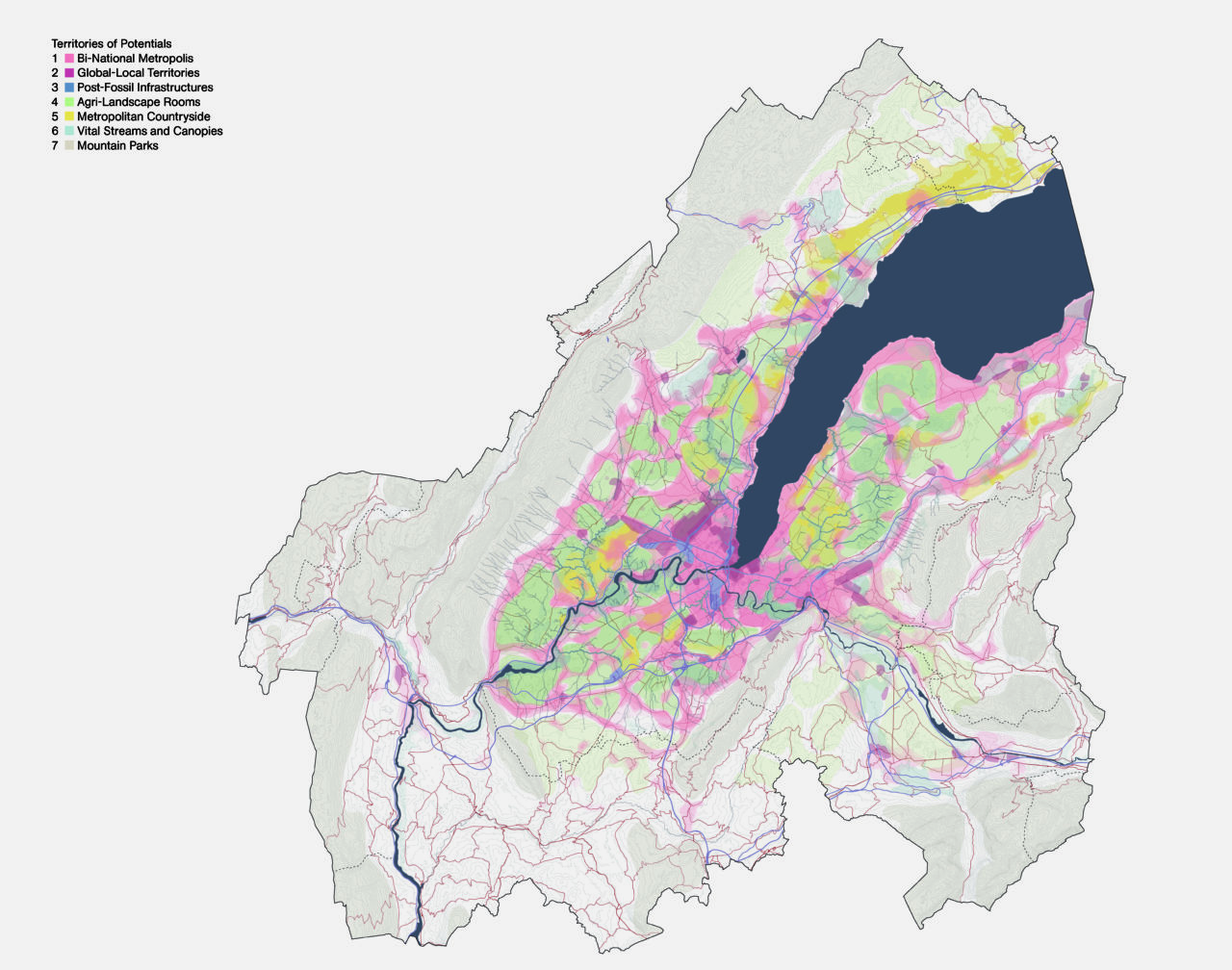
What is the future of the manifold agricultural territories across the world that support contemporary cities? While discussions on urban sustainability have focused on cities and urban regions, many agricultural territories are equally exposed to rapid and far-reaching urban transformation processes with massive social and environmental implications, opening a research gap for ‘agri-urbanisms’.
With nearly half of the total land area on the planet currently dedicated to some form of agricultural production, agriculture is one of the most important fields of action to address the manifold problematic of sustainability. Extended urbanisation in agricultural areas often leads to unsustainable territories generating risks for climate change, exhaustion of water and natural resources, consumption of arable land, and depletion of soil fertility, as well as disadvantaging local population, generating forced migration, and affecting quality of life. Among the urgent issues are the consequences of the industrialisation of agriculture, including dependence on fertilisers, pesticides and fossil fuels, soil erosion, and various forms of environmental pollution.
These issues could be addressed through novel agricultural practices, such as agroforestry, regenerative, and conservation agriculture. In line with the principles of agroecology, a more regional dimension of food production could become central to local economies, bringing multiple benefits, from ecological diversity and food security to better local participation and governance.
In this context, more theoretical and empirical work on processes of extended urbanisation in agricultural territories is urgent. This project aims to address the gap by analysing processes of extended urbanisation in agricultural territories across Europe and Asia in three typical forms:
- operationalised landscapes of industrial agriculture;
- peripheralised mountain regions; and
- enclosed and fragmented agricultural landscapes in extended metropolitan regions.
The project combines detailed qualitative analysis with quantitative geospatial analysis and modelling thereby linking the social, political, and cultural aspects of urbanisation to transformations in land use patterns, soil ecosystems, and ecosystem services. Building on analytical investigations, the project also aims to develop large scale urban-territorial design strategies and governance models for agri-urbanisms, based on the principles of agroecology and sustainable urban development.
The extended metropolitan region of Zurich serves as the central case and reference model. Three additional comparative studies (Arcadia, Johor and Delhi) will allow for a generalization of the findings and their contextualization in different urban constellations in Europe and Asia. Methodologically, the territorial approach originally developed at ETH Studio Basel and FCL Singapore is at the centre of the project.
Research Team
Prof. Dr. Christian Schmid, PI, ETH Zurich, D-ARCH, Chair of Sociology. His scientific work is on planetary urbanisation, on comparative urban analysis, and on theories of urbanisation and space. He is collaborating with Neil Brenner on a long-term theory project on planetary urbanisation.
Assoc. Prof. Milica Topalović, Co-PI, ETH Zurich, D-ARCH, Chair of Architecture and Territorial Planning. Her work is concerned with territories beyond-the-city and urgent transformation processes they are exposed to, through the movement of capital, social restructuring, and environmental change. She undertook a range of territorial studies around the world, in remote regions, resource hinterlands, and countrysides, in an effort to decenter and “ecologize” architect’s approaches to the city, the urban, and urbanization. In her recent work, she looks at regions whose social and environmental qualities have been degraded through unsustainable agriculture and resource harvesting practices, with intention to design their transformations on the principles of agroecology.
Prof. Adrienne Grêt-Regamey, ETH Zurich, D-BAUG, Planning of Landscapes and Urban Systems (PLUS)
Prof. Dr. Johan Six, ETH Zurich, D-USYS, Chair of Sustainable Agroecosystems
Dr. Christoph Kueffer, ETH Zurich, D-USYS & HSR Rapperswil, Chair of Urban Ecology
Asst. Prof. Dr. Naomi Hanakata, NUS School of Design and Environment
Assoc. Prof. Dr. Nancy Couling, Bergen School of Architecture & Senior Researcher at ETH Zurich, D-ARCH, Chair of Architecture and Territorial Planning
Assoc. Prof. Dr. Nikos Katsikis, TU Delft BK, Department of Urban Design
can Doc Nitin Bathla, ETH Zurich, D-ARCH, Chair of Sociology
can Doc Hans Hortig, ETH Zurich, D-ARCH, Chair of Architecture and Territorial Planning
Vesna Jovanović, ETH Zurich, D-ARCH, Chair of Architecture and Territorial Planning
Karoline Kostka, ETH Zurich, D-ARCH, Chair of Architecture and Territorial Planning
can Doc Metaxia Markaki, ETH Zurich, D-ARCH, Chair of Architecture and Territorial Planning
Muriz Djurdjevic, ETH Zurich, D-ARCH, Chair of Architecture and Territorial Planning
